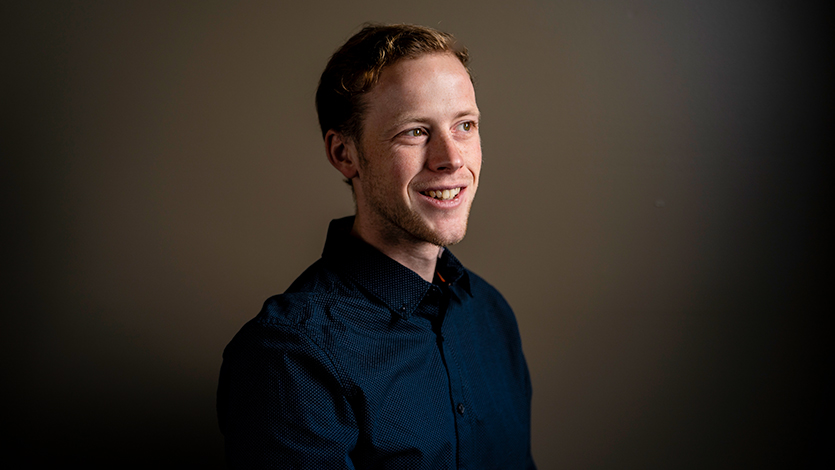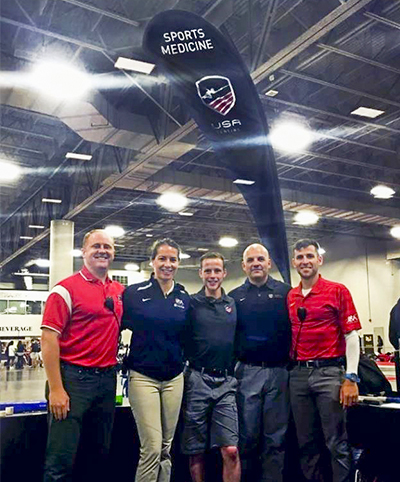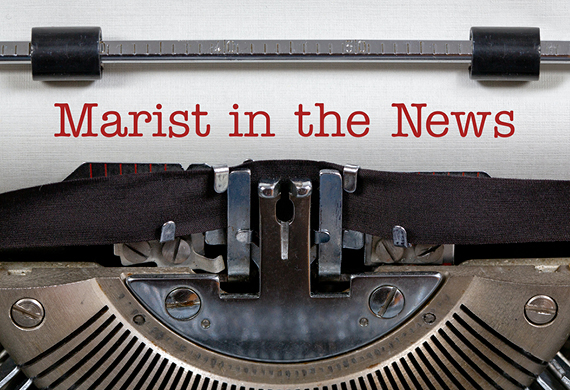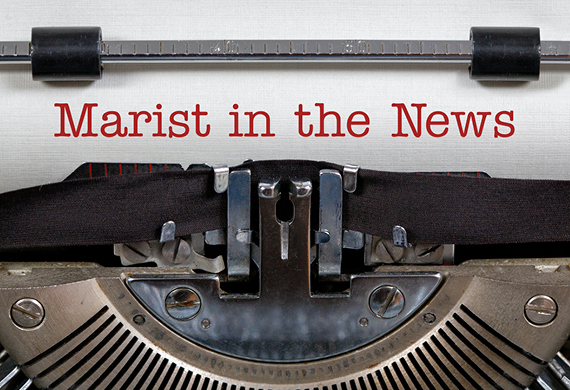From Student to Doctor, Ian Shultis Reflects on How Marist Helped Him Get There

After receiving his undergraduate degree in Athletic Training from Marist, Ian Shultis ’14/’21 expanded his professional experience during his role on the United States Fencing Sports Medicine team and returned to earn his Doctorate in Physical Therapy as a Red Fox.
Following his undergraduate graduation in 2014, Shultis worked in collegiate athletics at an NCAA Division III level for four years at Vassar College. There he was able to sharpen his skills and focus on his interest in the industry. “I was finding how the aspect of my work that focused on the rehabilitation components was an avenue I much more enjoyed. That partnered with the acute care and injury management skills learned through the Athletic Training program I could see this as a way to round out my expertise,” Shultis said.
In December 2021, Shultis will be the second graduating class in the history of the Marist Doctor of Physical Therapy program. Graduating as the second class brings pride to Shultis and his classmates. “I’m very proud to have been able to work with my classmates as part of a new program. Especially through last year’s 2020 disruption,” Shultis said. “I feel the class adapted well out of necessity, and honestly, it was up to us to make our experience our own finishing up this last year and a half, with a good deal of that time spent in clinicals.”
With a dedicated faculty of physical therapy professionals, Shultis was supported in both his academic and professional path and welcomed into the industry by experienced practitioners.
“I quickly felt established in a new place of learning as all the faculty are experts in their fields; notably many of the DPT faculty made me feel welcome both as a student and as a professional entering with prior experience as many of them came from a similar background in the sports medicine fields,” Shultis said.
Pursuing his doctorate during the COVID-19 pandemic, Shultis and his classmates had to adapt to a new learning environment. Throughout the program, the DPT faculty continually connected with students to ensure they are succeeding both academically and professionally despite the new learning challenges.
“It should definitely be noted how through the course of the pandemic the faculty would often go out of their way in assessing and seeing how many of us were doing both in school and outside of our studies,” Shultis said. “This in my mind gave me and my classmates a continued sense of connection with our studies and professors.”

“When I was in undergrad, I was able to volunteer as part of the U.S. Fencing Sports Medicine team, which then after school I was able to continue in a more official capacity,” Shultis said.
Growing as a professional within the U.S. Fencing Sports Medicine team, Shultis has learned the meaning behind working in a cohesive team to best help professional athletes. “I’ve learned how really being in the profession of Physical Therapy, or Athletic Training is it always should be a team approach and things are much more enjoyable that way in your day-to-day,” Shultis said.
Shultis credits the Athletic Training program for his success academically and professionally for providing a dedicated work ethic in sports medicine. “The Athletic Training program was by far the most helpful aspect of making me be prepared for working in the field. I remember it being extremely demanding and you would always be working weekends and nights,” Shultis said.
Throughout the program, Shultis was able to build on his professional experience and experiment in various disciplines to gain a wide range of knowledge of the industry. “The program taught so many skills, disciplines, and involved us in research that, further down the road into my career, it made continuing education seem less daunting and far more doable in order to pursue my aspirations to the level that I wanted to,” Shultis said.
Shultis wants to thank the professors and colleagues along the way that allowed him to explore his professional path or simply sat down to have a coffee with him to learn more about the industry.



